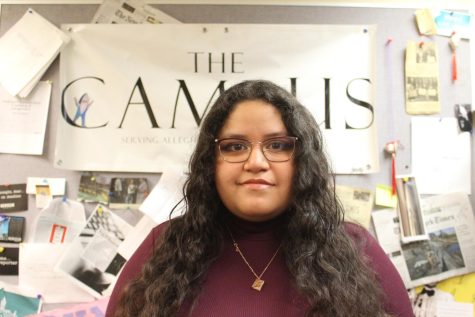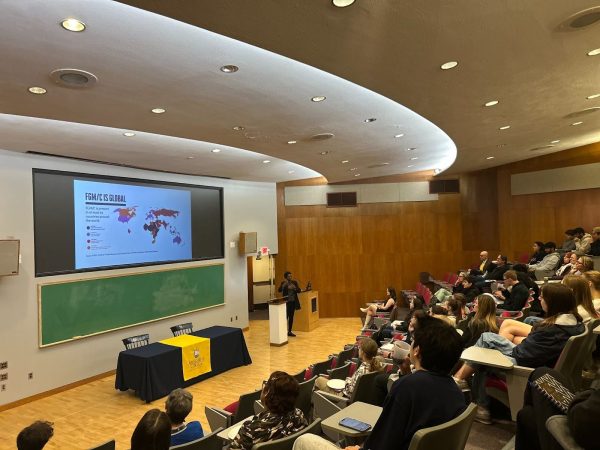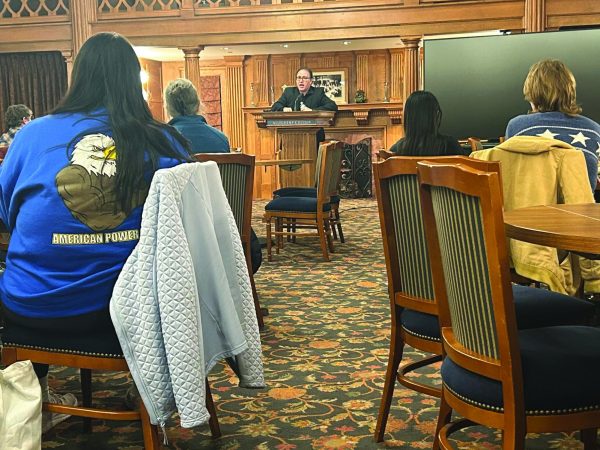WAG helps faculty collaborate on writing projects
At a higher education institution, students are held accountable by multiple sources to produce professional and meaningful work. It is easy to forget, though, that many educators and administrators at these same institutions publish their own work, similar to their students.
The Allegheny Writing Accountability Group sessions, organized by Pamela Runestad, professor of global health studies, and Rosita Scerbo, assistant professor of spanish, seek to provide faculty members a similar degree of support and accountability that they give to their students.
WAG met on Saturday, Jan. 22 in Carr Hall for its first session of the semester.
According to Rachel Weir, professor of mathematics and director of faculty development, the sessions were first started by Runestad and Scerbo during the fall semester of 2021.
“They both came to me with the idea of making space for untenured faculty to just have coveted time to work on writing projects that they have,” Weir said. “They meet one Saturday a month and just spend six hours writing, which is impressive.”
The inspiration for the program came from Scerbo’s experience with a similar program called the Faculty Success Program, organized by the National Center for Faculty Diversity.
“It was a 12 week online program where I participated with three other faculty members who were all women of color,” Scerbo said. “We had a special emphasis on how faculty of color navigate academia. Our goal was to be more productive while we were writing and also create a more balanced work-life balance.”
Scerbo explained that the session led to an increase in her productivity. Runestad had participated in a similar program at a different institution. Both programs focused on increasing productivity and balance in the lives of faculty.
“The first place that I worked full time had a group of people who got together once a month and it was called ‘Writing Boot Camp,’” Runestad said. “The idea behind it was not to necessarily practice our writing together, but to give each other a designated writing space.”
Both experiences led to the creation of WAG at Allegheny. The sessions are aimed to support untenured faculty with a scheduled time just for writing and members are held accountable.
“Before we start, we write on the board what goals they have for the day — normally people have from one to three goals,” Scerbo said. “At the end, we check if we actually were able to accomplish those goals and we cheer for each other, which I love. I love the community we have created and we receive at least three emails telling us how grateful they are for the space.”
Christopher Normile, professor of psychology, shared the impact the WAG has had in managing his writing time and increasing his connection to other faculty.
“It has been one of the best decisions I have made because I have gotten a lot of writing done since then,” Normile said. “It is only writing time and because of that I have already sent out one paper already. I think with COVID, it has been hard to meet a lot of other faculty so it definitely helps build a feeling of belongingness.”
Scerbo described how faculty have three different parts to their job: teaching, research and service. WAG helps faculty balance those responsibilities while building community. Runestad further explained that those are the three responsibilities that come with the process of becoming permanent faculty.
“Just like we want students to feel like they belong at Allegheny, it is the same thing with faculty,” Weir said. “It is important too for them to have connection and community as well.”
To build community, Scerbo explained that aside from discussing writing goals, faculty also share about their lives and concerns. WAG’s one-hour lunch time also intends to help faculty connect beyond their writing. Because peer revision is not a part of the sessions, the peer review process comes naturally and only when it is invited.
“It is not required to peer review because this just comes naturally when people get familiar with each other and we are all sharing a space together,” Scerbo said.
Runestad stated that the WAG benefits the institution because it builds a better working community.
“This kind of work supports our statement of community (since) we are coming together and supporting each other’s work and talking together about types of work we do and finding ways to be better about that,” Runestad said.
Scerbo and Runestad acknowledged that entering academia is more difficult for some groups than others.
“Thinking about ways in which people have struggled to become part of the academy is part of what we do here,” Runestad said. “I think this is something that distinguishes this group from other groups that I have been a part of where that has not been a parameter of writing accountability groups prior to coming to Allegheny.”

Evelyn Zavala is a senior from San Francisco. She is majoring in Business and minoring in Journalism in the Public Interest. This is her fourth year on...







